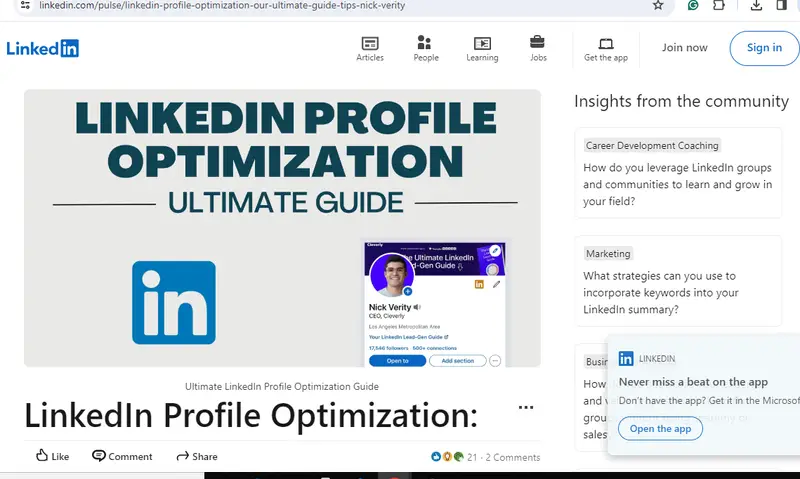Secret Hacks for Finding Remote Work Opportunities
The rise of remote work has been remarkable in recent years, with increasing companies recognizing the benefits of allowing employees to work anywhere globally. The flexibility and freedom of remote work have made it an attractive option for many job seekers.
However, with the growing popularity of remote work, finding the right job opportunity can feel daunting. The competition for remote positions is fierce, and knowing how to navigate the job market effectively is essential.
As an experienced remote work expert, I have helped numerous individuals uncover the secrets to landing their dream remote jobs. In this article, I will share some of my top-secret hacks for finding remote work opportunities that most people don’t know about. These insider strategies can give you a significant advantage over other job seekers and help you tap into a world of job possibilities that aren’t limited by geographic location.
By the end of this article, you will have the knowledge and confidence needed to approach your remote job search in a new way.
1. Optimize Your Online Presence
First, discuss optimizing your online presence when searching for remote work opportunities. Your online profiles, especially your LinkedIn profile, act as your virtual resume and can be a powerful tool in attracting potential employers.

Update your LinkedIn profile to highlight your remote work skills and experience. Showcase any previous remote positions and emphasize the skills that make you a valuable remote team member, such as strong communication, self-motivation, and time management.
But don’t stop there! If you have a personal website or portfolio, ensure it demonstrates your remote work capabilities. Include case studies or examples of projects you’ve completed remotely, and highlight the results you achieved.
Finally, engage with remote work communities and thought leaders on social media platforms like X and LinkedIn. Participate in discussions, share relevant content, and connect with others in your industry. This can help you build your reputation as a knowledgeable and experienced remote worker and may lead to potential job opportunities.
Read: Things to Know Before You Start Working Remotely
2. Utilize Remote Job Boards
Now that your online presence is optimized, it’s time to search for remote job opportunities actively. One of the best places to start is by utilizing remote job boards.
Several popular remote job boards exist, such as Jobs That Are Remote, FlexJobs, We Work Remotely, and Remote. co. These platforms specialize in listing remote job opportunities across various industries, making it easier to find positions that align with your skills and experience.
Use effective search techniques and filters to narrow down your results when searching these job boards. Look for keywords related to your desired role, such as “writing,” “dev ops,” or “Web design.” You can filter by industry, job type (full-time, part-time, freelance), and experience level.
Another pro tip? Set up job alerts for relevant job positions! Most remote job boards allow you to create alerts based on your search criteria, so you’ll be notified whenever new job listings that match your preferences are posted. This can save you time and ensure you’re among the first to apply for promising opportunities.
3. Network with Your Connections

In addition to optimizing your online presence and utilizing remote job boards, networking with your existing connections can be a powerful way to uncover remote work opportunities.
Contact your professional network, including former colleagues, mentors, and industry contacts. Let them know you’re actively seeking remote work opportunities and ask if they know of any openings or can introduce you to potential employers.
Attending virtual networking events and joining online professional communities can also be valuable. Look for events or groups related to your industry or specific to remote work, such as virtual job fairs or remote worker meetups. These events provide opportunities to connect with like-minded professionals and learn about potential job openings.
Finally, don’t underestimate the power of engaging with recruiters who specialize in remote job placements. Contact recruiters on LinkedIn and let them know you’re interested in remote work opportunities. They may have insights into unadvertised job openings or be able to connect you with companies that are actively seeking remote talent.
4. Leverage Freelance Platforms
Freelance platforms are another fantastic avenue for finding remote work opportunities. Websites like Upwork, Freelancer, and Fiverr connect skilled professionals with businesses and individuals seeking their services.
To get started, create an optimized and compelling freelancer profile that showcases your skills, experience, and portfolio. Highlight your remote work capabilities and any relevant certifications or training you’ve completed. Use a professional profile picture and write a clear, concise description of your services.
When bidding on projects, take the time to craft personalized proposals that demonstrate your understanding of the client’s needs and how you can add value to their project. Emphasize your remote work experience and how it enables you to deliver high-quality results efficiently.
To stand out from the competition, consider offering a unique perspective or solution to the client’s problem. Showcase your expertise by sharing relevant case studies or examples of past work. And don’t forget to communicate your availability and responsiveness – clients appreciate reliable freelancers who are easy to work with.
Read: Remote Work Vs. Freelancing: Which Is Better for You?
5. Proactively Reach Out to Companies

Sometimes, the best remote work opportunities aren’t advertised. That’s where proactive outreach comes in. Start by researching companies known for offering remote work opportunities in your industry or niche.
Once you’ve identified potential companies, craft personalized outreach emails to the hiring managers or decision-makers. Please express your interest in working with their company and highlight how your skills and experience align with their needs.
When crafting your outreach emails, showcase your value and remote work skills and capabilities. Share past projects or achievements demonstrating your ability to work independently and deliver results. Emphasize your communication skills and how you’ve successfully collaborated with remote teams in the past.
Remember, your outreach aims to start a conversation and build a relationship with the company. Even if they don’t have any current openings, expressing your interest and making a positive impression can lead to future opportunities.
6. Embrace Remote Work Trials
Many companies hesitate to hire remote workers without seeing how they perform in a remote setting. That’s where remote work trials or short-term projects come in.
These opportunities allow you to demonstrate your skills and remote work capabilities to a potential employer on a smaller scale. By excelling during a remote work trial, you can increase your chances of being offered a longer-term or permanent remote position.
When taking on a remote work trial, treat it as you would a permanent role. Communicate regularly with your team, meet deadlines, and deliver high-quality work. Seek feedback and be open to constructive criticism – this shows that you’re eager to learn and improve.
If the trial goes well, express your interest in working remotely with the company. Highlight the successes of the trial period and how you see yourself contributing to the team long-term.
By embracing remote work trials, you can gain valuable experience, build your portfolio, and potentially land a permanent remote position with a company that values your skills and work ethic.






